Overview of the discussion session at the National Assembly hall on the afternoon of June 11. Photo: Quochoi.vn
Continuing the program of the ninth session of the 15th National Assembly, on the afternoon of June 11, delegates discussed in the hall the draft Law amending and supplementing a number of articles of the Law on Handling of Administrative Violations.
Increasing fines should be based on specific criteria.
Basically agreeing with the contents of the draft law, delegate Nguyen Thi Viet Nga ( Hai Duong Delegation) was concerned about the level of fines in handling administrative violations .
According to the delegate, compared to the previous period, we have raised the level of fines for violations to a very high level. The delegate agreed with the view that it is necessary to increase the seriousness and deterrence in handling administrative violations.
Delegate Nguyen Thi Viet Nga (Hai Duong delegation) speaks. Photo: Quochoi.vn
However, delegates said that raising the fine level for each specific act needs to be considered carefully and cautiously, because the effectiveness of handling violations depends on many factors such as propaganda work, dissemination of legaleducation , strictness, transparency and fairness in law enforcement and handling of violations... Therefore, raising the fine level needs to be based on specific, clear and highly practical criteria.
“It is necessary to base on the socio-economic development conditions of the country in each period, especially the average income of the people. A fine that is too high compared to the ability to pay, especially for low-income workers, not only causes resentment but can also lead to consequences such as evasion, resistance, or negativity in the process of handling violations,” delegate Nguyen Thi Viet Nga expressed her opinion.
According to the delegate, it is necessary to assess the level of danger, nature and consequences of each violation. Serious violations that affect public health, social security, and state and people's assets should be severely punished at high levels. On the contrary, first-time violations, unintentional mistakes or minor consequences should be handled in an appropriate manner, with educational and deterrent effects but without causing unnecessary burdens for the people.
Along with that, it is possible to study and consider creating conditions for those who are unable to comply with administrative sanctions with fines that are too high compared to their income in some cases and specific behaviors to be considered for application as a partial replacement for other additional forms such as: Warning, forced remediation, community education, public disclosure of violations...
Delegate Phan Thi My Dung (Long An delegation) speaks. Photo: quochoi.vn
Concerned about the temporary detention period of exhibits and means, delegate Phan Thi My Dung (Long An Delegation) said that recent practice has shown that the application of regulations on temporary detention and confiscation of exhibits and means in cases where the temporary detention period has expired but the violator or owner does not come to receive them has encountered many difficulties because the exhibits and means must be temporarily detained for more than a year, after which a decision on confiscation and handling can be issued.
“This leads to many warehouse costs for storage and management of confiscated items and means of violation, as well as many potential risks for the task force. Meanwhile, for confiscated items that are prohibited goods such as cigarettes, firecrackers, alcohol, etc., violators, owners, managers or legal users will almost never come to receive them,” the delegate stated.
From the above analysis, the delegate proposed to reduce the detention period by one year for the above case or based on the results of the competent authority's file verification to consider handling the exhibits and means without having to wait for the full year as prescribed.
Clearly define the authority to impose sanctions on local authorities at two levels.
Regarding the authority to impose penalties when implementing a two-level local government, delegate Nguyen Tam Hung (Ba Ria - Vung Tau Delegation) said that the draft Law expands authority for many positions but does not clarify the scope and limits, causing the risk of overlap and difficulty in uniform application.
Delegate Nguyen Tam Hung (Ba Ria - Vung Tau) speaks. Photo: Quochoi.vn
Therefore, the delegate suggested that the drafting agency legalize the principle of determining authority in the form of an appendix attached to the Government's guiding Decree to ensure flexibility.
The delegate also suggested that the drafting agency supplement and clarify the authority to sanction administrative violations in the context of a two-level local government organization.
In particular, determining the sanctioning authority between state administrative agencies is essential to ensure clarity, no overlap but no vacancy. However, the draft law has not yet specified the principles for determining sanctioning authority in the case of merger or transfer of functions of specialized agencies.
Therefore, the delegate suggested that the drafting agency consider adding a new clause to Article 37a stipulating that the administrative units of the two-level local government shall receive the corresponding functions and tasks to ensure that there is no interruption in the handling of administrative violations. At the same time, it creates a solid legal basis to avoid complaints and disputes in the current transitional period.
Delegate Pham Van Hoa (Dong Thap delegation) speaking. Photo: Quochoi.vn
Delegate Pham Van Hoa (Dong Thap Delegation) is concerned about the authority to sanction administrative violations when implementing two-level local government from July 1, especially when there will no longer be specialized inspection agencies of the ministry or district level.
Therefore, the delegate said that it is necessary to clearly define the authority to sanction administrative violations of the Chairman of the People's Committee at the commune level and the Head of the specialized department. This will help to promptly handle administrative violations, without having to wait for the provincial inspector to come down and give instructions.
Regarding the handling of violations without a record, delegate Pham Van Hoa said that the record is related to the rights of the person being punished. If they want to file a complaint without a record, there is no basis for doing so. According to the delegate, when handling administrative violations without a camera recording or witnesses, verification and complaints will be very difficult.
At the meeting, Minister of Justice Nguyen Hai Ninh, on behalf of the drafting agency, received, explained and clarified the opinions of 61 discussion groups and 16 delegates discussing in the hall.
Minister of Justice Nguyen Hai Ninh speaks to receive and explain. Photo: Quochoi.vn
Minister Nguyen Hai Ninh said that, in response to the urgent need to reorganize the two-level local government apparatus, the draft law was submitted to the National Assembly with a shortened process; at the same time, clarifying the contents that delegates are interested in related to the statute of limitations for handling administrative violations; handling in the electronic environment; increasing the level of handling administrative violations...
On the same afternoon, National Assembly deputies discussed in the hall the draft Resolution of the National Assembly on exemption of agricultural land use tax. Minister of Finance Nguyen Van Thang spoke to explain and clarify a number of issues raised by National Assembly deputies.
Source: https://hanoimoi.vn/tang-xu-phat-vi-pham-hanh-chinh-can-chu-y-den-thu-nhap-trung-binh-cua-nguoi-dan-705252.html


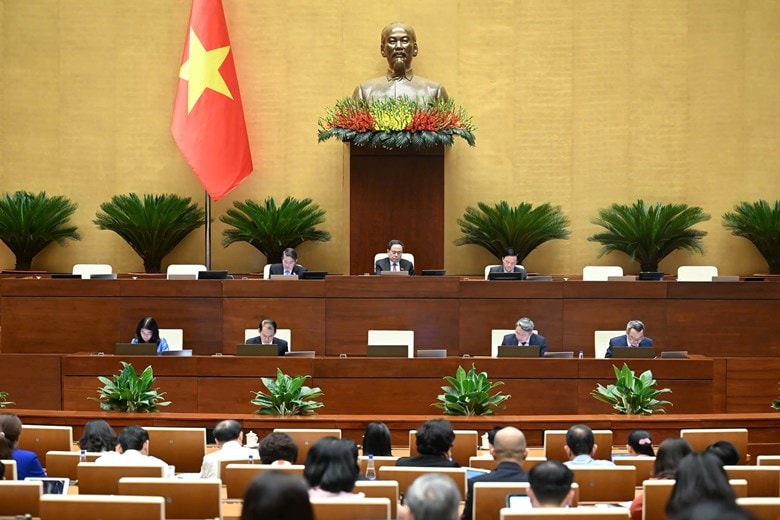
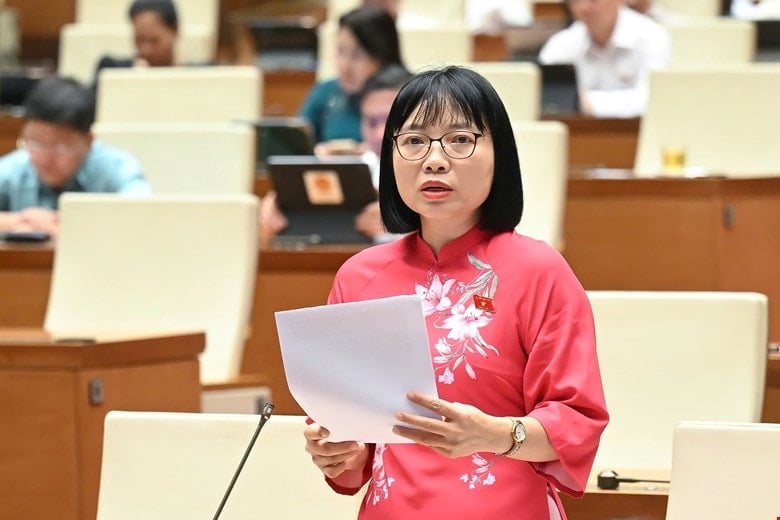
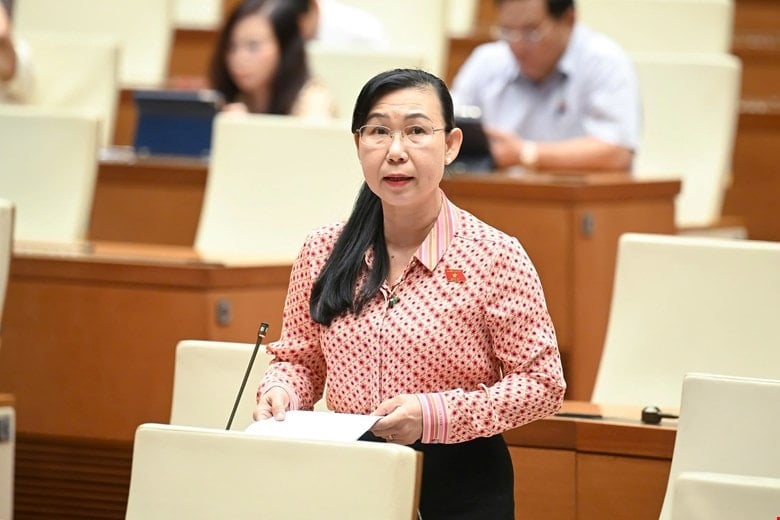
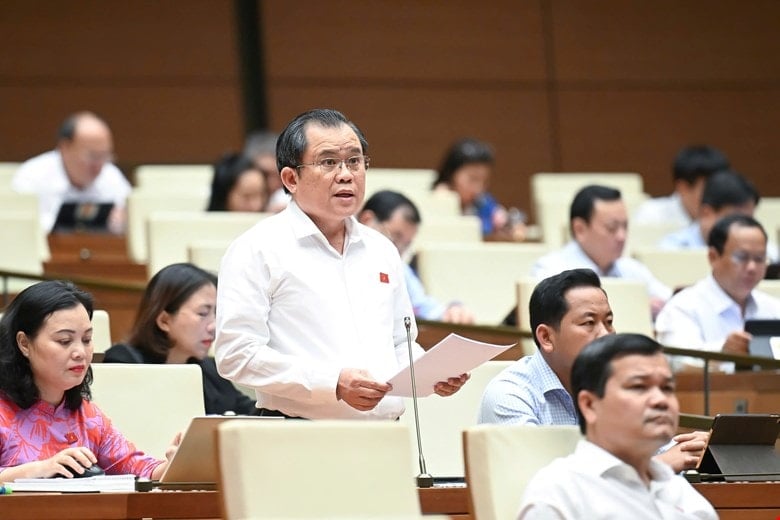
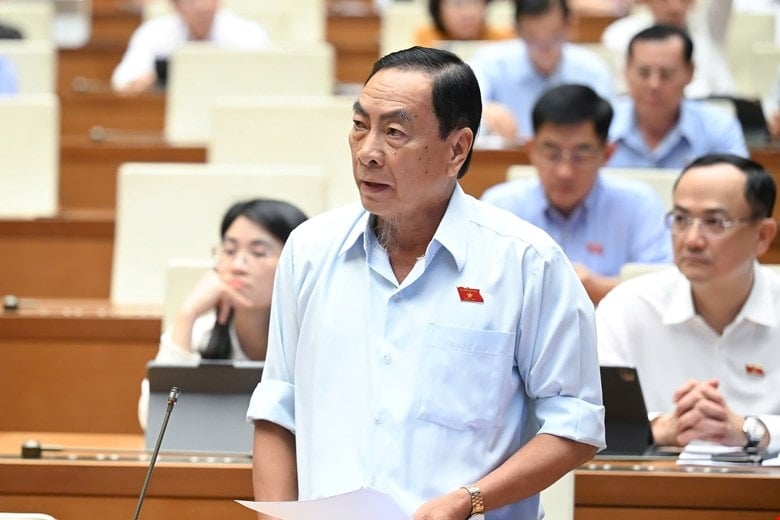
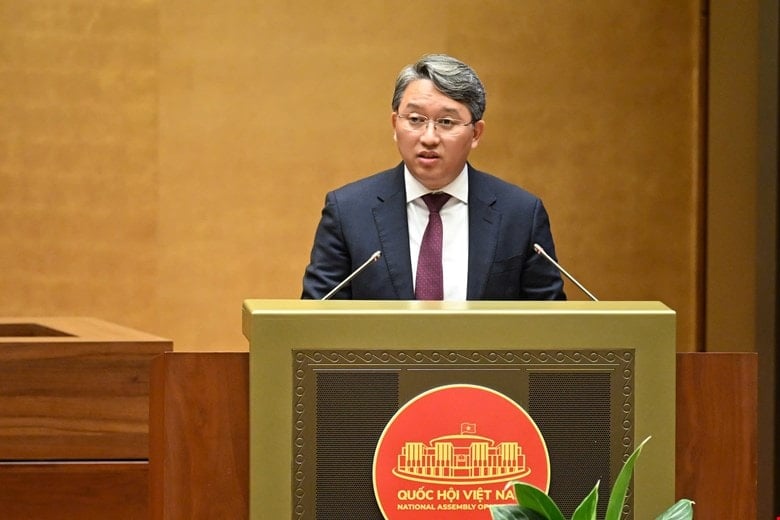






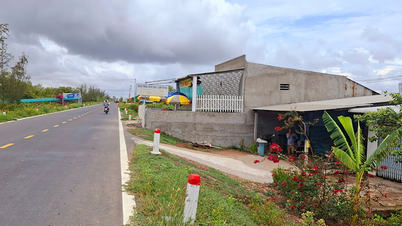



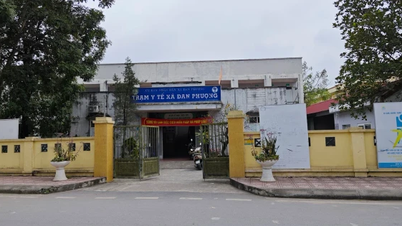
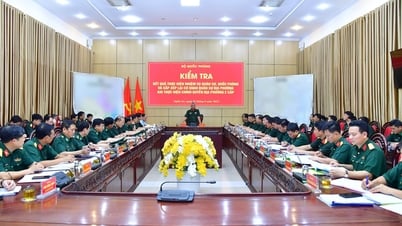

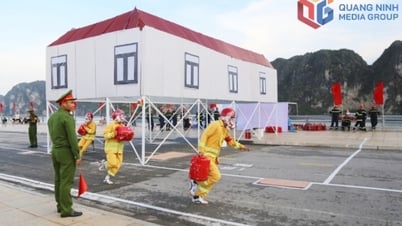

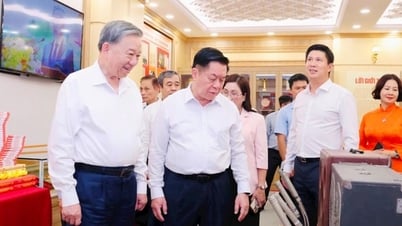





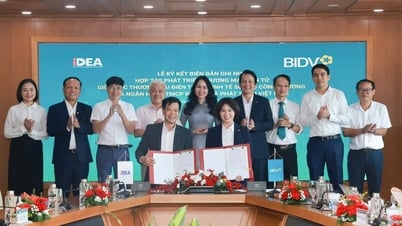
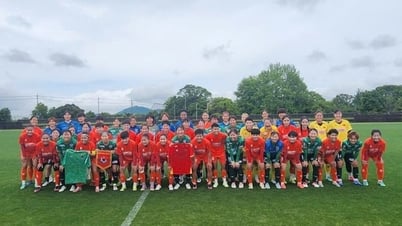

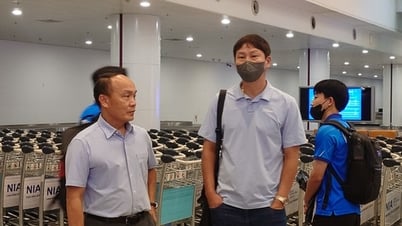




















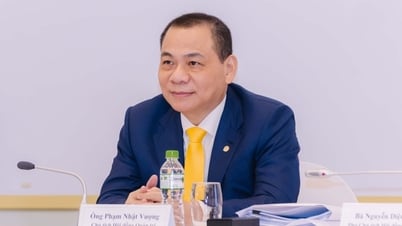
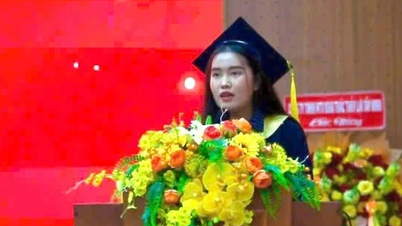









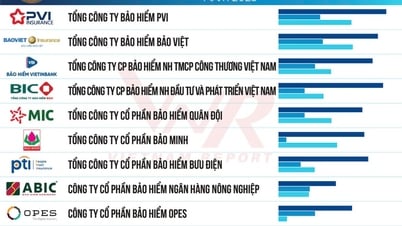







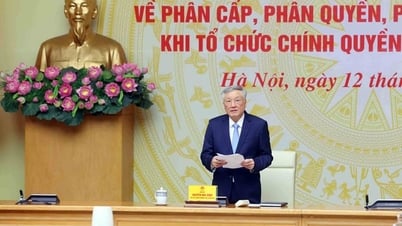





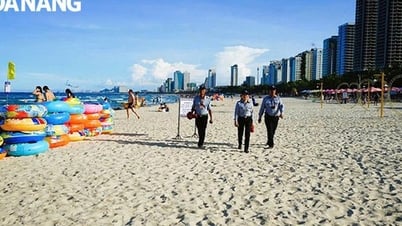












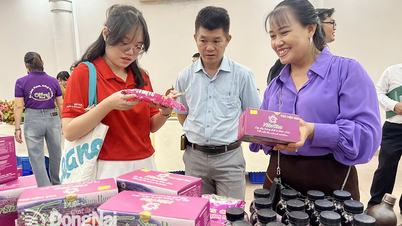

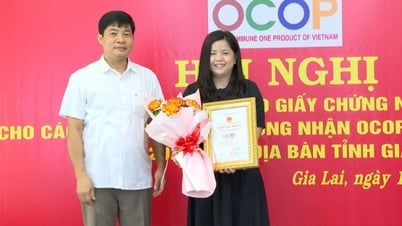

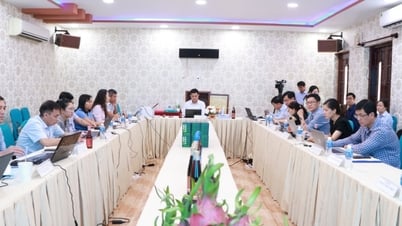




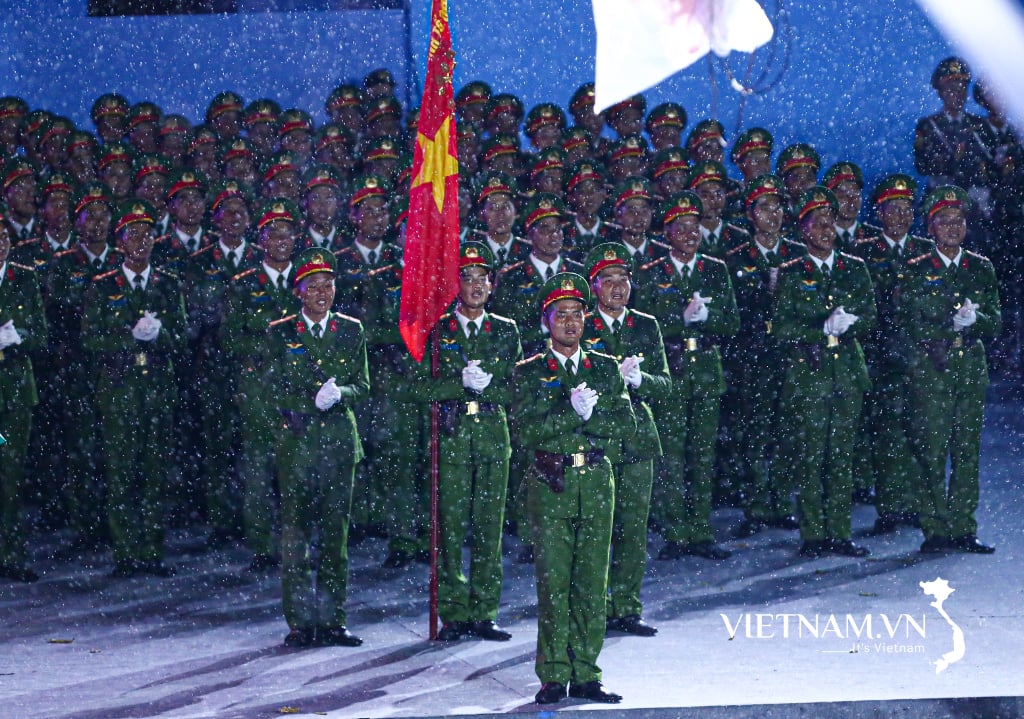

Comment (0)